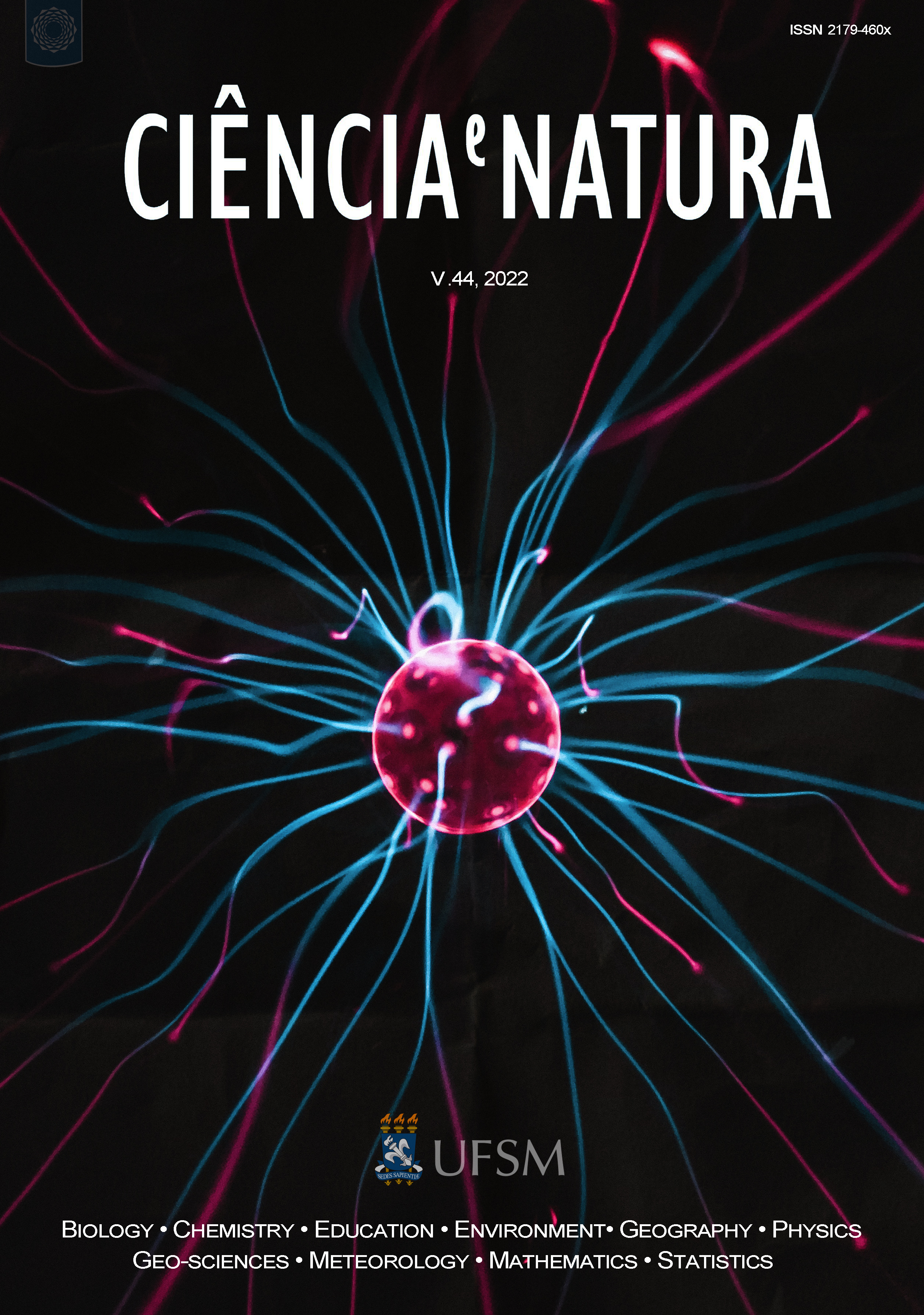A implementação de soluções integradas de comunicação e colaboração por meio da G Suite for Education junto a cursos de engenharia
DOI:
https://doi.org/10.5902/2179460X43645Palavras-chave:
Metodologia, Comunicação, IntegraçãoResumo
Este artigo, objetiva descrever a percepção dos estudantes matriculados na disciplina Cálculo Numérico, considerando a utilização de soluções integradas de comunicação e colaboração, por meio das ferramentas da G Suite for Education, em relação as condições de aprendizagem, nos cursos de engenharia ofertados pela Universidade Tiradentes na cidade de Aracaju no estado de Sergipe/Brasil. Os resultados revelam que uma das maiores modificações na metodologia da aula foi a eliminação da entrega de trabalhos impressos, o que foi possível com o uso do Google Classroom. Além desta alteração, destaca-se neste trabalho ferramentas que foram executadas por meio do pacote da G Suite for Education. A pesquisa evidencia a facilidade de comunicação e interação com o professor e com os demais estudantes, a dinâmica de entrega e a discussão dos resultados das atividades propostas. Além da construção de atividades colaborativas, pois, mesmo não estando fisicamente juntos, os grupos de estudantes desenvolveram e comentaram a resolução de problemas simultaneamente, no mesmo arquivo, de forma compartilhada e colaborativa. A pesquisa revelou que por meio da G Suite, o estudante mostra-se mais envolvido com a disciplina e consequentemente com a sua formação.
Downloads
Referências
ALMEIDA, Maria Elizabeth Bianconcini de, Educação, ambientes virtuais e interatividade. In: SILVA, Marco (org.). Educação Online. São Paulo: Loyola, 2003
ASSMANN, H. Reencantar a educação: rumo à sociedade aprendente. Petrópolis: Vozes, 1998.
CASTELLS, M. A sociedade em rede. São Paulo: Paz e Terra, 1999.
GOOGLE FOR EDUCATION. Google for Education. [s.l.]. Disponível em: https://edu.google.com/. Acesso em: 23 nov. 2019.
LÉVY, P. As novas tecnologias da inteligência: o futuro do pensamento na era da informática. Rio de Janeiro: Editora 34, 1993
GAMBOA, S. S. Pesquisa em educação: métodos e epistemologias. 2. ed. Chapecó: Argos, 2012.
GIL, A. C. Como elaborar projetos de pesquisa. 4. ed. São Paulo: Atlas, 2007.
MERCADO, L. P. Formação Continuada de Professores e Novas Tecnologias. Maceió: Edufal, 1999.
MINAYO, M. C. S. Pesquisa social: teoria, método e criatividade. Petrópolis: Vozes, 2001.
PRENSKY, M. Nativos Digitais, Imigrantes Digitais. De On the Horizon, NCB University Press, v.9, n. 5, out., 2001. (Tradução do artigo "Digital natives, digital immigrants", cedida por Roberta de Moraes Jesus de Souza: professora, tradutora e mestranda em educação pela UCG).
PRETI, O. Educação a distância: construindo significados. Cuiabá: NEAD/IE - UFMT, 2000.
PRETTO, N. de L. Uma escola com/sem futuro. Educação e Multimídia. Campinas: Papirus, 1996.
SALES, S. & FICHMANN, S. (2013). Redes de Aprendência: uso de tecnologias digitais e formação de professores. In: Workshop de informática na escola, 19., 2013. Anais [...]. Porto Alegre: Sociedade Brasileira da Computação, 2013.
SIMÕES, I. A. G. (2009). A Sociedade em Rede e a Cibercultura: dialogando com o pensamento de Manuel Castells e de Pierre Lévy na era das novas tecnologias de comunicação. [S.l.]: Revista Eletrônica Temática.
SPRATT, C.; WALKER, R.; ROBINSON, B. Practitioner research and evaluation skills training in open and distance learning. Module A5: Mixed research methods. Commonwealth of Learning, 2004. Disponível em: http://oasis.col.org/bitstream/handle/11599/88/A5%20workbook.pdf?sequence =1&isAllowed=y. Acesso em: 13 de julho de 2022.
Publicado
Versões
- 2022-09-22 (2)
- 2022-07-25 (1)
Como Citar
Edição
Seção
Licença
Copyright (c) 2022 Ciência e Natura

Este trabalho está licenciado sob uma licença Creative Commons Attribution-NonCommercial-ShareAlike 4.0 International License.
Para acessar a DECLARAÇÃO DE ORIGINALIDADE E EXCLUSIVIDADE E CESSÃO DE DIREITOS AUTORAIS clique aqui.
Diretrizes Éticas para Publicação de Revistas
A revista Ciência e Natura está empenhada em garantir a ética na publicação e na qualidade dos artigos.
A conformidade com padrões de comportamento ético é, portanto, esperada de todas as partes envolvidas: Autores, Editores e Revisores.
Em particular,
Autores: Os Autores devem apresentar uma discussão objetiva sobre a importância do trabalho de pesquisa, bem como detalhes e referências suficientes para permitir que outros reproduzam as experiências. Declarações fraudulentas ou intencionalmente incorretas constituem comportamento antiético e são inaceitáveis. Artigos de Revisão também devem ser objetivos, abrangentes e relatos precisos do estado da arte. Os Autores devem assegurar que seu trabalho é uma obra totalmente original, e se o trabalho e / ou palavras de outros têm sido utilizadas, isso tem sido devidamente reconhecido. O plágio em todas as suas formas constitui um comportamento publicitário não ético e é inaceitável. Submeter o mesmo manuscrito a mais de um jornal simultaneamente constitui um comportamento publicitário não ético e é inaceitável. Os Autores não devem submeter artigos que descrevam essencialmente a mesma pesquisa a mais de uma revista. O Autor correspondente deve garantir que haja um consenso total de todos os Co-autores na aprovação da versão final do artigo e sua submissão para publicação.
Editores: Os Editores devem avaliar manuscritos exclusivamente com base no seu mérito acadêmico. Um Editor não deve usar informações não publicadas na própria pesquisa do Editor sem o consentimento expresso por escrito do Autor. Os Editores devem tomar medidas de resposta razoável quando tiverem sido apresentadas queixas éticas relativas a um manuscrito submetido ou publicado.
Revisores: Todos os manuscritos recebidos para revisão devem ser tratados como documentos confidenciais. As informações ou ideias privilegiadas obtidas através da análise por pares devem ser mantidas confidenciais e não utilizadas para vantagens pessoais. As revisões devem ser conduzidas objetivamente e as observações devem ser formuladas claramente com argumentos de apoio, de modo que os Autores possam usá-los para melhorar o artigo. Qualquer Revisor selecionado que se sinta desqualificado para rever a pesquisa relatada em um manuscrito ou sabe que sua rápida revisão será impossível deve notificar o Editor e desculpar-se do processo de revisão. Os Revisores não devem considerar manuscritos nos quais tenham conflitos de interesse resultantes de relacionamentos ou conexões competitivas, colaborativas ou outras conexões com qualquer dos autores, empresas ou instituições conectadas aos documentos.






